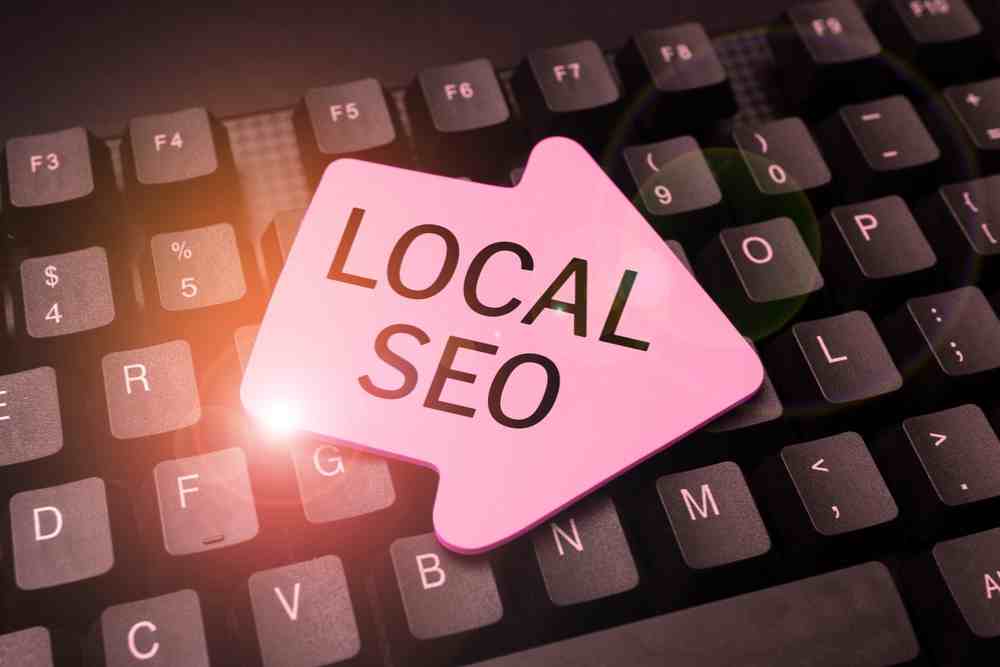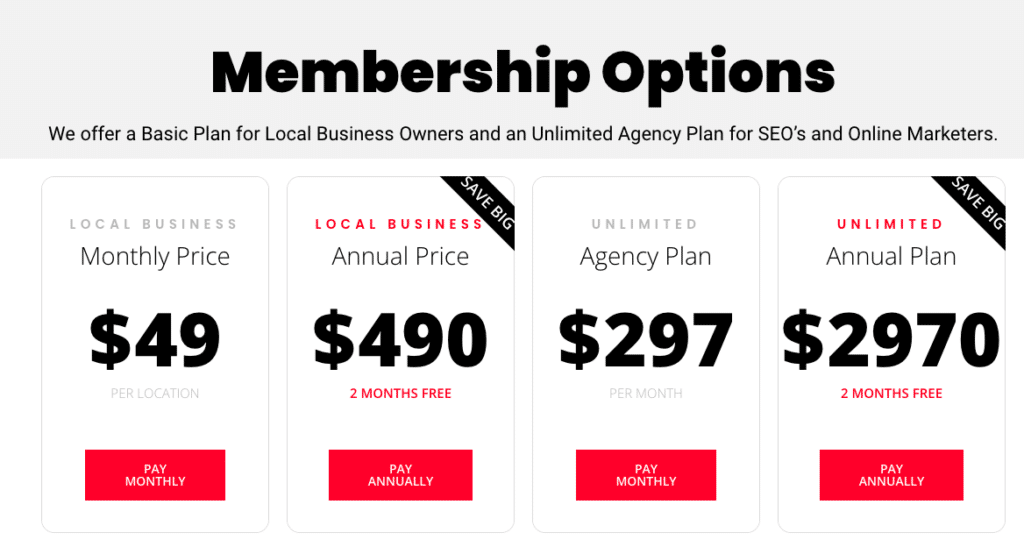Local Business Listing SEO Strategies

Local business listings play a crucial role in the success of small businesses in today’s digital landscape. With the majority of consumers turning to search engines to find local products and services, optimizing your business listing for search engine optimization (SEO) is essential. In this article, we will explore effective strategies to improve your local business listing SEO and drive more traffic and customers to your business.
Get a 14-DAY FREE TRIAL for 300 Local Citations you can edit on one simple dashboard.
1. Claim and Optimize Your Business Listings
The first step in improving your local business listing SEO is to claim and optimize your listings on popular search engines and online directories such as Google My Business, Bing Places, and Yelp. These platforms allow you to provide accurate and up-to-date information about your business, including your address, phone number, website, and business hours.
Get your FREE 14 DAY TRIAL for over 300 local citations. Click below!

When claiming your business listings, ensure that all the information you provide is consistent across all platforms. Inconsistencies in your business name, address, or phone number can confuse search engines and negatively impact your local SEO efforts. Additionally, make sure to include relevant keywords in your business description and choose appropriate categories to help search engines understand your business better.
Get a 14-DAY FREE TRIAL for 300 Local Citations you can edit on one simple dashboard.
2. Encourage Customer Reviews
Customer reviews are not only important for building trust and credibility with potential customers but also play a significant role in local SEO. Search engines consider the quantity and quality of customer reviews when determining the ranking of local businesses in search results.
Encourage your satisfied customers to leave reviews on your business listings. You can do this by providing exceptional customer service, sending follow-up emails requesting feedback, or offering incentives such as discounts or freebies for leaving a review. Responding to customer reviews, both positive and negative, also shows that you value customer feedback and can improve your local SEO.
3. Optimize Your Website for Local SEO
While optimizing your business listings is crucial, it’s equally important to optimize your website for local SEO. Here are some strategies to consider:
Get a 14-DAY FREE TRIAL for 300 Local Citations you can edit on one simple dashboard.
- Include your business name, address, and phone number (NAP) on every page: Make sure your NAP information is prominently displayed on your website, preferably in the footer or header section. This helps search engines associate your website with your business listings.
- Create location-specific landing pages: If your business has multiple locations, create separate landing pages for each location. Optimize these pages with location-specific keywords to improve your chances of appearing in local search results.
- Optimize your meta tags: Include relevant keywords and location information in your page titles, meta descriptions, and header tags. This helps search engines understand the content of your web pages and improves your visibility in local search results.
- Implement schema markup: Schema markup is a code that helps search engines understand the context of your website content. Implementing schema markup for your business address, phone number, and other relevant information can improve your local SEO.
4. Build High-Quality Citations
Get a 14-DAY FREE TRIAL for 300 Local Citations you can edit on one simple dashboard.
Citations are online mentions of your business name, address, and phone number on other websites, directories, and social media platforms. Building high-quality citations is an effective strategy to improve your local business listing SEO.
One way to build citations is by manually submitting your business information to popular directories such as Yellow Pages, Yelp, and TripAdvisor. However, this process can be time-consuming and tedious. Alternatively, you can use a service like Citation Vault, which automates the process of creating 300 local citations for any business. Citation Vault ensures that your business information is consistent and accurate across all directories, saving you time and effort.
5. Leverage Online Reviews and Testimonials
In addition to customer reviews on your business listings, featuring positive reviews and testimonials on your website can also improve your local SEO. Search engines consider user-generated content as a signal of trust and relevance.
Get a 14-DAY FREE TRIAL for 300 Local Citations you can edit on one simple dashboard.
Showcasing positive reviews and testimonials on your website not only helps with local SEO but also builds credibility and trust with potential customers. Consider creating a dedicated page or section on your website to display these reviews. You can also feature them on your homepage or product/service pages to highlight the positive experiences of your customers.
Get a 14-DAY FREE TRIAL for 300 Local Citations you can edit on one simple dashboard.
Optimizing your local business listing SEO is crucial for attracting more customers and increasing your online visibility. By claiming and optimizing your business listings, encouraging customer reviews, optimizing your website for local SEO, building high-quality citations, and leveraging online reviews and testimonials, you can improve your local SEO and drive more traffic to your business.
Remember to ensure consistency in your business information across all platforms and directories, as well as to provide exceptional customer service to encourage positive reviews. Additionally, consider using a service like Citation Vault to automate the process of building high-quality citations for your business.
Implementing these strategies will not only improve your local SEO but also help you establish a strong online presence and stand out from your competitors in the local market.
So, take action today and start optimizing your local business listing SEO to drive more traffic, customers, and revenue to your business.
This article mentions Citation Vault, a local citation service that automates 300 local citations for any business.
Read more about “Creating Local Business Listings” here.
Frequently Asked Questions about Local Business Listing SEO Strategies

Why is SEO important for my local business listing? 🤷♂️
SEO (Search Engine Optimization) is like giving your local business listing a megaphone in the digital realm. Here’s why it’s pivotal:
Local Visibility: Proper SEO ensures your business shows up when potential customers search for services or products you offer in your area. 🔍🏡
Competitive Edge: With similar businesses vying for attention, a well-optimized listing stands out and attracts more clicks. 🥇📈
Trust & Credibility: High-ranking listings are often perceived as more reputable and trustworthy by users. 🌟💼
Drive Traffic: Good SEO not only drives online traffic but can also translate to more footfalls at your physical establishment. 🚶♂️🚗
In essence, SEO amplifies your reach, resonance, and reputation in the local market. 🔊✨
What are the key SEO strategies to optimize my local business listing? 📋
Optimizing your local listing with SEO is a blend of art and science. Here’s a strategic checklist:
Consistent NAP: Ensure your Name, Address, and Phone Number are uniform across all online platforms. Any inconsistency can confuse search engines. 📄✅
Keyword Optimization: Incorporate relevant keywords into your business description, services, and even image filenames. But remember, avoid keyword stuffing! 📝🔍
Engaging Photos: Regularly update high-quality photos. Images enhance user experience and can be indexed by search engines. 🖼️🌟
Garner Reviews: Encourage customers to leave reviews. Positive reviews can boost your listing’s ranking, especially on platforms like Google My Business. ⭐💬
Local Links: Cultivate backlinks from local websites, newspapers, or blogs. Local link building can be a potent signal for local SEO. 🌐🔗
Adhering to these strategies, your listing can become a beacon for local searchers. 🚀🏆
How can I target local search keywords effectively? 🎯
Targeting local search keywords requires a blend of research and intuition. Here’s how:
Understand Your Audience: Pinpoint terms your potential customers might use. If you’re a cafe in Brooklyn, terms like “best Brooklyn coffee shop” could be gold. ☕🗺️
Use Tools: Employ keyword research tools like Google’s Keyword Planner or Ubersuggest to uncover high-volume, local-specific terms. 🔧📊
Monitor Competitors: Observe which keywords your local competitors are targeting. It can offer insights and gaps you can exploit. 👀🥊
Long-tail Keywords: These are more specific and often less competitive. “Organic vegan pizza in downtown LA” might drive more targeted traffic than just “pizza in LA.” 🍕🌱
By anchoring your listing around locally relevant keywords, you speak the language of your community and match their search intent. 🗣️🔍
How does mobile optimization factor into my local listing SEO? 📱
With a significant chunk of local searches emanating from mobile devices, mobile optimization is paramount. Here’s why:
Immediate Action: Mobile searches often translate to swift actions, like a store visit or a purchase. Being optimized ensures you’re the chosen destination. 🚶📲
User Experience: A mobile-friendly listing ensures easy navigation, quick load times, and seamless interaction. Smooth experiences lead to conversions. ⚙️🎉
Search Engine Preference: Search engines like Google prioritize mobile-optimized listings, especially after their mobile-first indexing shift. 🌐🥇
Simply put, in the mobile era, if your listing isn’t mobile-optimized, you’re conceding ground to competitors who are. Stay agile and accessible! 🚀📱
How do I measure the success of my local business listing SEO efforts? 🧐
Measurement is key to mastery. Here’s how to gauge your success:
Rankings: Monitor where your business appears for targeted local keywords. Higher visibility often correlates with increased engagement. 🔍📈
Traffic Analytics: Tools like Google Analytics can shed light on how much traffic your listing drives to your website. 🌐📊
Conversion Rates: Look beyond just clicks. Monitor calls, store visits, or online purchases originating from your listing. 📞🛍️
Customer Reviews: An uptick in positive reviews can be a testament to successful SEO efforts, especially if you’re targeting reputation as a keyword strategy. ⭐💬
Regularly reviewing these metrics and iterating on your strategies ensures your SEO game remains sharp and effective. 🔬🚀
Local Business Listing SEO isn’t just about being visible; it’s about being valuable. By aligning with the search intent of your community and offering genuine value, you can not only rank high but also rank close to their hearts. Dive deep, optimize smart, and shine local! 🌟🏙️







